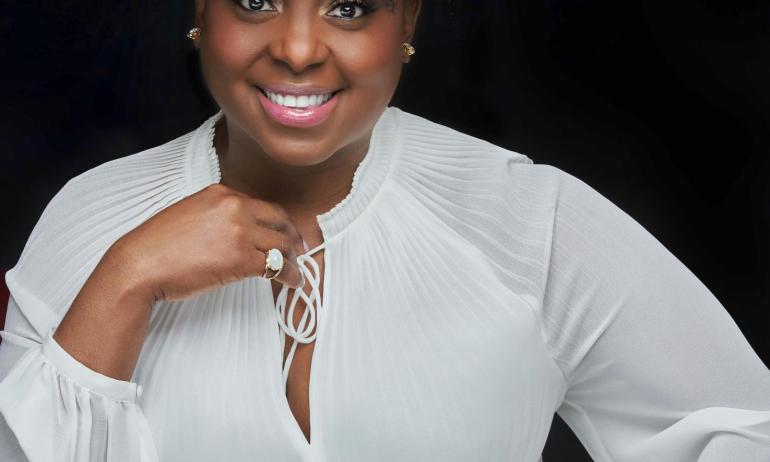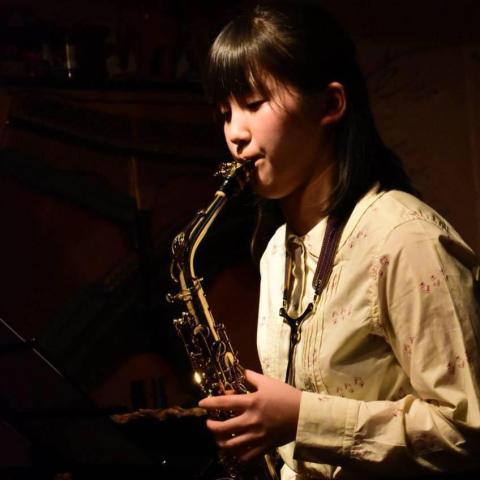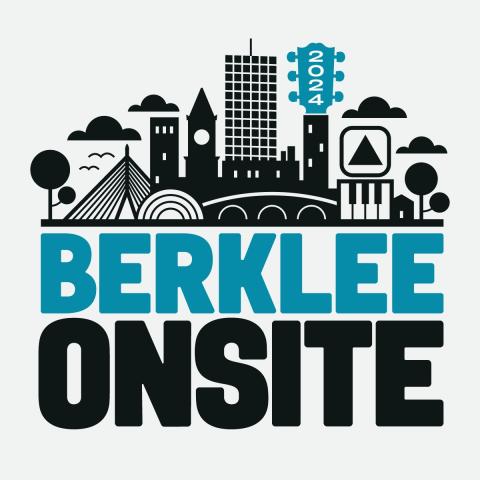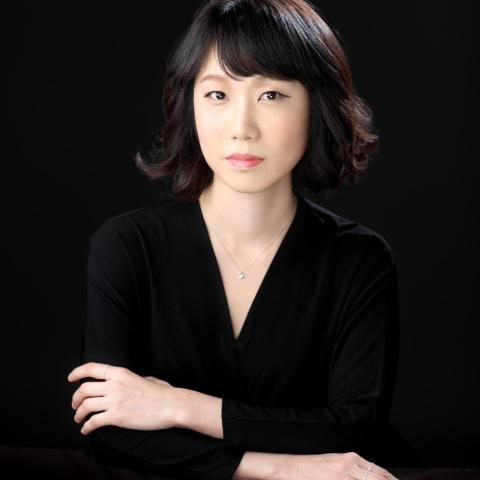Miami’s Hitmaker
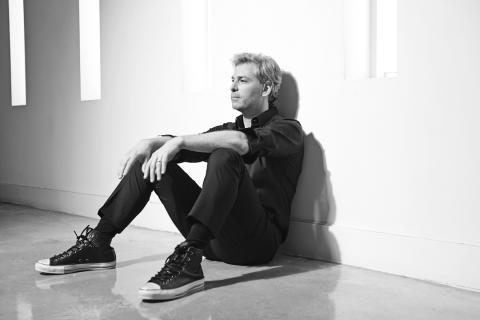
Image by Carlos Perez
When Nir Seroussi was studying music business at Berklee, he had his eye on eventually landing a job in mainstream American music, which was then the industry’s center of gravity.
But after college, he happened to get an internship in Latin music, at Warner in Miami.
Then his first job, as a music publisher at Insignia Music in Los Angeles, was in Latin. The next job, at EMI Latin in L.A., also was. He may have been facing the sun, but he was being pulled into another universe.
“When I let go and embraced it, I just became so passionate about it. I wouldn't trade it for anything else,” Seroussi B.M. ’96 says.
He adds that he was never “set on becoming a Latin kingpin.” However, today he’s exactly that. Billboard put Seroussi on its 40 Under 40 Power Players list in 2013, 2014, and 2015, and on its Latin Power Players list from 2015 to 2019.
He’s helped launch the careers of some of Latin music’s hottest artists: Maluma, Ozuna, Becky G, Nicky Jam, and Farruko, among others.
Last February, after 15 years at Sony Music Latin, including five as president, Seroussi charted a new course in his career. He left Sony to become an executive vice president at Interscope Geffen A&M Records, expanding the label’s global footprint and overseeing its newly formed Miami headquarters.
Seroussi’s success doesn’t surprise Jay Fialkov, a professor of music business at Berklee, who was Seroussi’s teacher and, later, boss.
“It makes perfect sense to me,” Fialkov says, remembering him as a “superstar,” adding, “He was a model for what an intern should be not only in terms of a pleasure to be around, but in terms of being proactive and smart.”
Likewise, Emilio and Gloria Estefan, who’ve known Seroussi for years and worked with him at Sony, sing his praises. “For Nir, it’s always been all about the music. His ability to relate directly with the artist has been a key to his success. He has an incredible talent for finding the true artistry in music, and I’m confident that in his role at Interscope he will continue showcasing Latin music to the masses,” Emilio Estefan says.
In early March, Seroussi sat down with Berklee Today in Miami to talk about building his first customer base in high school, his unforeseen career path, what makes him want to sign an artist, and more. Immediately following the conversation, he joined Don Gorder, the soon-to-retire chair of the Music Business/Management Department, for a discussion and Q&A with Berklee alumni as well as Interscope staff and talent. Below is an edited version of those conversations.
You moved to Venezuela from Israel when you were 12 years old. How did living in Caracas influence you musically?
The influence didn’t really kick in until later on. I grew up listening just to mainstream— first, in Israel, to more European, U.K.-driven, mainstream music. Then, when I attended high school in Caracas, an American school, I got into rap and metal. I wasn’t really paying attention to Latin music.
Back then, I guess, it was just the seeding phase, but I wasn’t immediately enamored by Latin music. It felt foreign. I grew up speaking Hebrew until I was 12 and I had never been exposed to Latin culture. Even though my parents were from Uruguay, they spoke Hebrew at home. We grew up Israeli. If anything, it was a dormant phase when it comes to the actual Latin influences. It surfaced years later.
How did you become interested in going to Berklee?
It was my mom who was trying to be three steps ahead and telling me, “We’ve got to figure out college.”
I always liked business, I was told. I didn’t realize it. I actually had a little side hustle of buying and selling instruments to the kids in school. So, my mom thought, “OK, music and business. What’s out there that combines the two?”
When I heard about the music business combo at Berklee, I just became obsessed. I don't even know if I finished applying to other schools.
What was this business you were running at your school?
I don’t know how proud I am of it because I was probably taking advantage of a privileged situation. The American high school has kids who come from families that are well off, right?
I never saw myself as an influencer at all; I wasn't the cool kid. I gravitated to playing guitar and to metal, and so here I was, this kid who's dressed in metal shirts and long hair. All the other kids were like, “That's so cool. I want to do that, too. What do you think I can play?” I would literally assign them an instrument: “You need to play drums.” I would sell the concept to them. I would look up in the classifieds, find instruments, go to the shadiest places in town because I found a deal. I'm glad my mom interpreted it as having a knack for business. But it wasn't about the money. It was like “Wow, these kids are actually kind of following me.” Yeah, it was fun. It was cute.
And when you went to Berklee, you entered the newly created music business program.
The program has changed my life. Everything connects in this business. I mean, you think, “What does this step mean in my career?” But listen, everything leads to where you are.
Right after graduation you went to Miami to work as an intern in Latin music at WEA Latina (now Warner Music Latina). Tell me about that.
Latin didn't really interest me. It was more about, “Everybody seems to be going to Nashville, New York, and L.A. What's the road less traveled? OK, let's go to Miami.” I didn't overthink it. I didn’t have a plan to get into Latin music, but I had a hunch. It felt like something that most people weren't doing. And that was great because Don [Gorder] was the one who helped me get the internship.
When I started, I went all in. I was the first person in, last one out. I got fully immersed in it. I learned a lot. I mean, I came in with almost zero knowledge about Latin music. At that point, I was borrowing from what I'd heard growing up and wasn’t paying attention to.
But for a long time, I was looking for a starting point that would then take me to the American side. I wasn't thinking about stationing myself in Latin, early on. I saw the opportunity, but in the back of my head I figured, “This is a start, but the carrot is over there.”
I felt like Miami’s not the place, and so I moved to L.A. And then Latin music kept pulling me in. You know, speaking Spanish and understanding the culture. When I went to Berklee, all my friends, my roommates, were Mexican. I was surrounded with Latinos, and I felt really comfortable with Latinos. But again, I was thinking, I'm more American.
Did you know you wanted to eventually be a label executive?
I think I romanticized it but it wasn't the definite end game. After a few years in L.A., I discarded the label thing. And I remember why. Coming from publishing, you’re at the bottom of the totem pole: You're there pitching songs, hoping that they'll get recorded, and if they get recorded, hopefully it makes it to the album. If it makes the album, hopefully, it gets the proper marketing push, and hopefully the song is a single and hopefully...there are so many ifs. You have no control. So, my beef was, “If I'm in marketing, I'm subject to whatever A&R brings in. I have no control of the product. If I’m in A&R, I have no control of the marketing.” I had told this to a friend who's an executive. A year later, he called me, saying, “I've got the job for you. I have a vacancy in A&R and marketing. And you can have them both.” It was EMI Latin.
[blockquote class="half"] I didn’t have a plan to get into Latin music, but I had a hunch. It felt like something that most people weren't doing.[/blockquote]
And to make matters quote-unquote worse, it was in Regional Mexican music. I had no idea about it. So I've never done A&R, I've never done marketing, I don't know Regional Mexican music, and I'm going to walk in there and these guys are going to look at me like, “Who's this white dude?” I would talk to them in Spanish and they would answer in English. They would look at me like, “There's no way this guy speaks Spanish.” It was a very, very challenging cultural encounter. I had to gain their trust and had to become kind of an expert in that world, and I learned enough to navigate it and do it pretty successfully.
I loved being able to infiltrate myself into the culture and having them accept me as one of their own. I even ended up writing songs for a lot of these artists. That's how deep I went into understanding it and just living and breathing it.
What did you take away from that experience?
There are so many things that I learned, such as the criteria of an artist that has potential. I think in genres that come from under—it could be anything, it could be country, it could be hip-hop—anything that comes from the masses, or from the grassroots, it's not about being the best-looking, having the best vocals. You just go to a show and watch how an artist connects with the audience and that's it. That's what you're looking for. Not the qualifications on paper.
And that connection can come from something very rustic and something very unsophisticated, but there's passion. Maybe it's two chords and a broken voice, but it connects. That experience allowed me to have a blueprint of a conversation I could then have with people from different walks of life and from different cultures and from different countries.
After your time at EMI, you went to Sony Music Latin. But in February 2019, after 15 years there, you left to become the executive vice president of Interscope Geffen A&M. Why did you make this move?
We built [Sony Music Latin] to be the number one label in the market, and we had the biggest, most powerful roster that was housed under one roof ever in the Latin industry. But once you get to that point, how do you grow? You fall into a maintenance mode. I felt it was time for a change. Music is changing. There's a wave of new artists. I think I'm going to be able to provide more for them than for artists who are already set. It's different when you're grabbing an artist that has zero followers, zero subscribers, zero nothing, and then a year later you go back and, wow, now you have a million fans. That's my passion, that's what I chase.
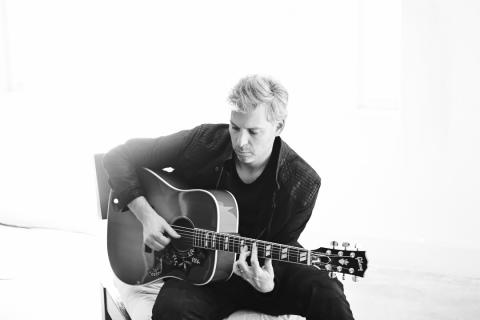
Interscope came along and it was a match made in heaven. I was thinking, “Wouldn’t it be amazing to have the coolest label in the world actually putting forward their resources for Latin artists?” This community has earned a place in the international arena. I want our artists to have those tools at their disposal, where you have the Latin experts who can help you build your base, and then you've got the muscle of a U.S. label. So when it's time to grow and become international or collaborate with an American artist, it's already part of the equation.
It's a big challenge; you're starting from scratch, you're building a team, you're signing new artists. But I've got the best partner I can imagine, so it's pretty cool.
The Latin market seems to be booming these days.
It looks like it's booming because it is booming. I mean, hey, Bad Bunny—who would have thought three years ago that he'd land 14 tracks simultaneously on the Global 50? That’s amazing. So, we're there, we are a global player. And I think we'll definitely see more and more convergence with the American market, with different markets, whether it's Europe, Africa, or Asia.
I think that there will be more collaborations. They have to be smart collaborations because we fell a bit as an industry into this mathematical equation of putting this artist with that artist because they have X amount of monthly listeners on Spotify, and thinking that means it's going to be a hit. Not necessarily. You can be scientific behind the scenes but on the consumer front, it has to feel organic and culturally relevant, which is not always easy.
What opportunities do you see as boundaries between genres continue to dissolve?
There's a blurring of genres happening all across music. Even in American music. Like Post Malone: It's very melodic but it's urban. The same thing is happening in Latin: The genres are getting very blurry. You have artists come in every day who don't identify with a specific genre. Now we have American artists that can totally relate to a Latin artist, like, “Yo, I love that beat. I can totally jump on that record.” We're going to see more collaborations happening more naturally.
Where do you look for Latin talent?
Even though we're here in Miami, our playground is Latin America and Spain. Our focus has been mainly going out to different countries—and, by the way, we've expanded beyond the obvious, which were Puerto Rico and Medellín [Colombia] for a while, and went on to places like Argentina and Chile, and other parts of Colombia, and Venezuela, because we kind of feel that the roadmap starts in Latin America, and all the successful Latin artists have really built a base down there before they came up.
What makes you interested in an artist?
What I can tell you, perhaps differently from other folks, is that it's not about the numbers for us anymore. We don't obsess over how many subs an artist has on YouTube and how many monthly listeners on Spotify. We look at it because it would be a crime not to, but it's more like a gut thing.
The thing with data is, if you have access to it, anybody has access to it. So then it becomes these ridiculous bidding wars. It's almost like you forgot why you're in it. If you're not passionate about me as your partner, and now I'm competing with everybody…. To me, it feels weird. And that's what data does nowadays, it makes people just go crazy. We stay away from that game.
Nir Seroussi and Don Gorder talk at Berklee in 2016.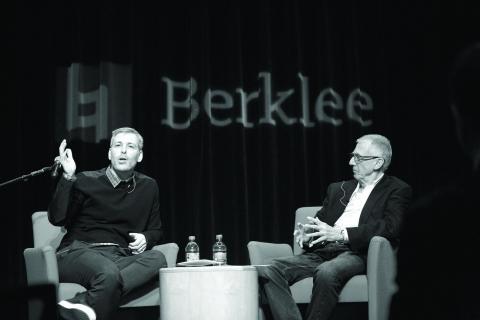
I started collaborating with Bad Bunny when he first came out. I didn't think he would be this big; I didn’t know, I didn't picture that. But there was something special about him that even though it contradicted the traditional profile of an artist, there's something really authentic about his proposition that resonated, and right now he’s the top-consumed artist in the world.
Now more than ever, whatever you express has to feel real, because if it's not, it's probably going to be short-lived. That's why Rosalía has been rising. It's an authentic proposition. If you take authenticity out, you may have moments, you may have a viral moment, but it’s not relatable and connectable.
How much of your work is focused on artist development?
I can speak for us here at Interscope. That is what we do. And it's a long-haul game. You gotta be ready for it to take a while. As long as you're making solid steps towards building an audience, and you're getting good feedback, and you're getting better at what you are doing. Oh, if you don't have a hit, then tomorrow it's over? Hell no, that's not how the world works. If a quick hit happens, it's typically a fluke. I mean, how many Tik Tok songs actually become mainstream hits or cross over to other, more serious, consumption?
You start by stripping down the artist or project and understanding what your goals are. It's a very deep dive into who you are, your tastes. We need to get to know you first before we go out there and tell fans who you are.
How do you market these artists and how has that changed over the years?
You focus on building audiences. Before, marketing was inefficient. It was just massive marketing. We didn’t know the audience, we didn't know the fan. And you start over again every time. To me, it was a very frustrating process.
Now, the artist is constantly engaged and communicating with his fans. Before, it was about pushing a product as hard as you can. Now, it’s “How do you build an audience?” Take Bad Bunny: He did an album that, three years ago, nobody would have cared about. But now he has such a big audience, he just dropped that album and people want to listen. He didn't push it. He just dropped it.
I'd say that’s the fundamental difference between how things were done before and how they’re done now. I think it's much smarter because, ultimately, what we talk about every day is, “We have a new artist, how do we build an audience?” That's pretty much the goal.
Sounds like the power dynamic with the audience has shifted.
You can't bully forward with a consumer nowadays, right?
There are so many things working against you nowadays when you have so much content out there, and you really have to stand out. You have to be more humble as a whole—artists and everybody included—because you're up against a very tough audience who can now listen to podcasts, and they can spend their time of leisure doing anything else but listening to you.
You can't push. It's about inviting—that’s what it is. You have to invite people: “Hey, here's why you should like me.”
You need to be thankful that that one person is choosing to listen to you. That's very different. Nobody thought that way in the past.
Has the power dynamic between labels and artists also changed?
Artists are also different now. They're engaged with the fans. You have a different breed of artist where they're sitting with you, and you're all having conversations about which photos to post. Everybody has an opinion and carries weight in the conversation.
Maybe it's just my vision, but you have more and more artists coming from the independent world. These guys, they exercise every function on their own. They're more knowledgeable because they've actually lived it. It really feels more and more like it has to be a partnership versus “You signed to me, and this is the plan.”
At the same time, I also throw it back at the artists: “Great, you're talented, you've done all this, but are you ready for what it takes? You're going to have to get on planes, you have to wake up in the morning in Mexico City, 4:00 a.m., spend three hours in traffic, go do an interview; you walk in, the interviewer doesn't even know your name. Some of it is not fun. Do you have what it takes?” That's the flip side.
[blockquote class="half"] We don't obsess over how many subs an artist has on YouTube and how many monthly listeners on Spotify.[/blockquote]
I believe in artist-friendly, but I think it's important for the artist to also know what they're signing on for. If it's international expansion, it's going to be work, and, for the most part, this generation doesn't know how to work. They think if you just post it, you're good.
We aspire to take artists to international success. And it's OK if an artist doesn't want that. But if you want to go big, then you really have to have the right stuff. And we've encountered great talent, but we're not going to be a good match because you're not willing to do what we feel is needed to take you where you want to be, at least where you say you want to be. It's really not for everybody.
What advice do you have for people who want to work at a record label?
If you found your passion, then you're lucky. That's a huge plus. If you haven't, then you need to search, and you may not find it right away. But you have to be proactive about finding your passion because when you're passionate, work doesn't feel like work. If this feels like work, you're going to have a miserable life, and it's going to wear you out.
I see people fall into a gig where they're miserable. It’s a dead end. What do you expect is going to happen? You're going to get promoted out of it? No, because it's the energy you’re putting out.
I mean, listen, in every role there's a lot of crappy stuff. And people tend to naively think, “I'm going to find artists and sign them.” Yeah, that's like 5 percent of what you do. And you cannot choose to be passionate about the 5 percent. That doesn't work.
What's your favorite part of the job?
It's artist development and sitting here picking the next single, finding a hit, and asking “Who do we get on that song?” When a music supervisor in desperate need of a song calls, and I say, “Great! I’ve got just the one for you.” That's fun for me. I think that's ultimately what I enjoy the most: connecting the dots.
This article appeared in the spring 2020 issue of our alumni magazine, Berklee Today.

